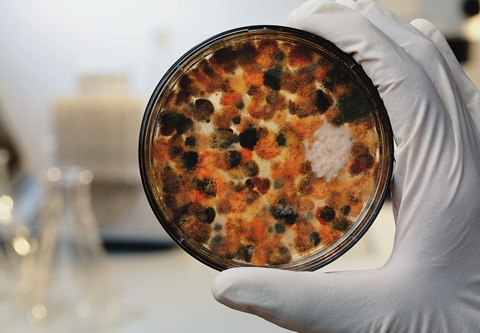Drug resistance occurs when the organism you’re trying to kill evolves ways to outsmart the drug with which you’re trying to kill it. Like antibiotic resistance, anti-fungal resistance has become a huge problem in health care, making many of our best drugs useless.
But now a U of T researcher has discovered that thwarting a particular protein might prevent fungi from becoming drug resistant. Her approach is emerging as a promising anti-resistance strategy – not only in fungi, but in diseases such as malaria and cancer.
Prof. Leah Cowen, a molecular geneticist and microbiologist, knew that cells normally die when their proteins aren’t folded properly. She also knew that a protein called “heat shock protein 90” (HSP90) helps misshapen proteins refold back into their correct shapes if they’ve somehow been damaged. Cowen was the first to realize that this refolding was helping drug-resistant mutant cells to survive, and that, if she could stop HSP90, the mutant cells would perish.
To test the idea, Cowen and her colleagues tried various ways of interfering with HSP90. One method involved creating such a high demand for refolding that the protein couldn’t keep up. In another experiment, they tried blocking HSP90 with a drug that inhibited its actions. In each case, hindering HSP90 made drug-resistant strains of fungus more vulnerable – so much so that old anti-fungal drugs that had stopped working began to kill off the fungi again. “When you take resistant organisms that normally don’t respond to anti-fungals and treat them with HSP90 inhibitors, you make them responsive,” she says. “It enables the drugs to work.”
Although Cowen’s experiments worked in the petri dish and in moth larvae, they didn’t work in a mouse model. Mice suffering from fungal infections, which were then infused with HSP90 inhibitors along with traditional anti-fungal drugs, didn’t survive. Cowen speculates that the anti-HSP90 drug she was using may have been harming the mice as well as their infections – so she and her team are now looking for inhibitors that specifically target the fungal form of the protein.






